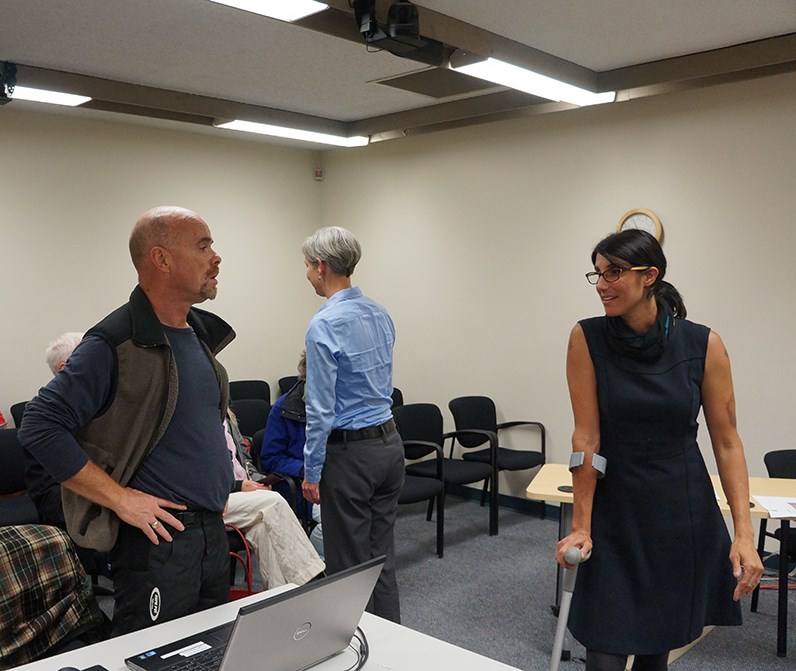Matt Blackman got the answer he was hoping for from council on Tuesday night.
District council voted unanimously to direct staff to work with Blackman and his Squamish Alternative Energy Group to complete the final three steps needed for the district to become the fifth Canadian Solar City in Canada.
“I am pleased that it has moved ahead,” Blackman said after the meeting. “Council and the mayor have put skin in the game now, as opposed to just listening politely.”
The Alternative Energy Group submitted an application to the Canadian Solar Cities Project in late spring for the solar title, but received a letter, also sent to Mayor Patricia Heintzman, that said the council needed to be more involved in the application.
In particular the district needs a demonstration project on a municipal building; a date by which a climate change plan – currently underway at the district – will be completed; and a joint application that states the District of Squamish commits to the project.
“The advantages [of the moniker] is to bring business, alternative energy and clean energy businesses to Squamish by basically kicking our renewable energy industry in this town – manufacturing and installation – into high gear, and set ourselves as an example,” Blackman told council. “There are many, many benefits we would have.”
The current four Canadian Solar Cities are Dawson Creek, Colwood, T’Sou-ke Nation and North Vancouver.
Councillor Susan Chapelle earlier in the day voiced objections to the push for solar in the district.
“The solar panels are cheap because of lax environmental standards in China,” she said after Blackman made a presentation at the community development standing committee Tuesday afternoon. She said she would like to see more accurate costing of converting to solar, adding the technology just isn’t where it needs to be to make it environmentally and financially affordable.
At the evening council, however, she supported the motion for district staff to work toward Squamish gaining the Canadian Solar Cities title because of its educational value.
“Solar isn’t my favourite energy out of all of them, but there are many ways, and like [Blackman] says, we have got to start somewhere,” she said. “I really commend the group for the work that they’re doing in order to bring the education, which is why I support this motion.”
Heintzman said the initiative is just one of many the community needs to do to become more energy efficient.
“It is a start,” she said. “These kinds of things appear tokenism, with this sort of nebulous title, but I think the idea is you take something like this and make sure you implementing it with your economic development strategy, implementing it in your zoning and your land use decisions, it is a bigger picture issue and renewables and solar is just one.”
Council also voted to review and update the 2010 District of Squamish Neighbourhood Energy Utility (NEU) Feasibility Report. An NEU is an environmentally friendly, community-based energy system that can provide heating and hot water to a specific area. North Vancouver, for example, has Lonsdale Energy, which provides hot water and heat to connected buildings in the Lonsdale area through six mini-plants located throughout the municipality. The original feasibility study found several challenges with an NEU for Squamish including the cost.




